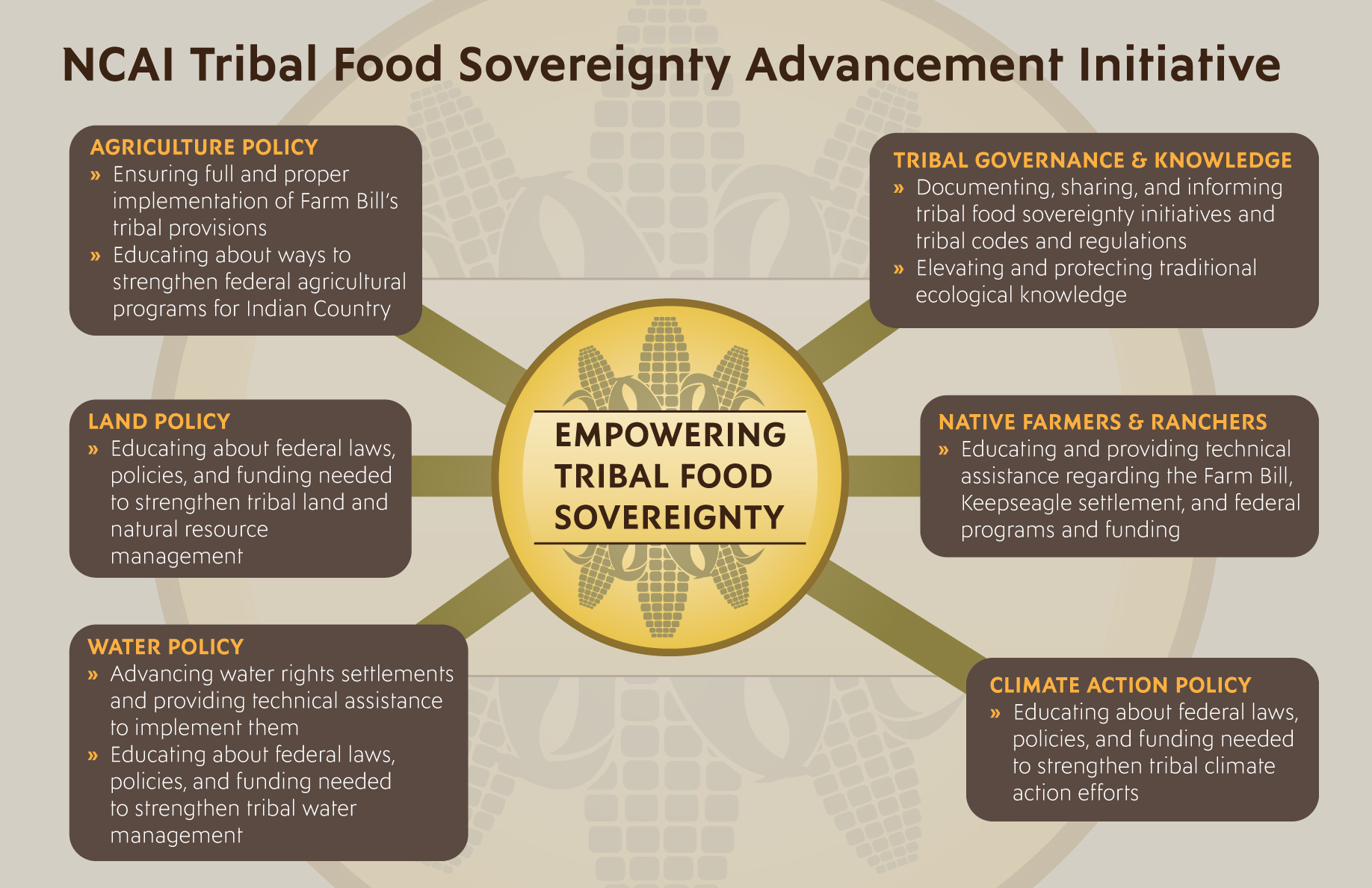NCAI’s Tribal Food Sovereignty Advancement Initiative (TFSAI) supports the development and strengthening of tribal nations’ efforts to build and protect the Indigenous food systems that have long sustained their citizens, communities, and cultures.
Among other activities, TFSAI empowers tribal food sovereignty by: creating a forum for tribal leaders to share best practices for advancing food sovereignty; assisting tribal governments with developing food sovereignty and related policies; advocating for federal policy changes needed to improve the quality and accessibility of food assistance and cultivation programs; protecting and sustaining tribal lands, waters, and natural resources integral to tribal food systems; and providing materials to help build the knowledge base and skills of current and aspiring Native farmers, ranchers, and other food providers.
What Is “Food Sovereignty”?
TFSAI defines “food sovereignty” as the right and ability of tribal nations and peoples to:
- freely develop and implement self-determined definitions of food sovereignty;
- cultivate, access, and secure nutritious, culturally essential food produced through ecologically sound and sustainable methods”; and
- design and maintain food systems and enact policies that advance tribal priorities for ensuring that tribal citizens have the sustenance they need to thrive physically, mentally, socially, and culturally not just today, but for the generations to come.
TFSAI works to advance this definition in all six primary components of its work (see below).
TFSAI’s Primary Work Components
(Click the image below to download)
